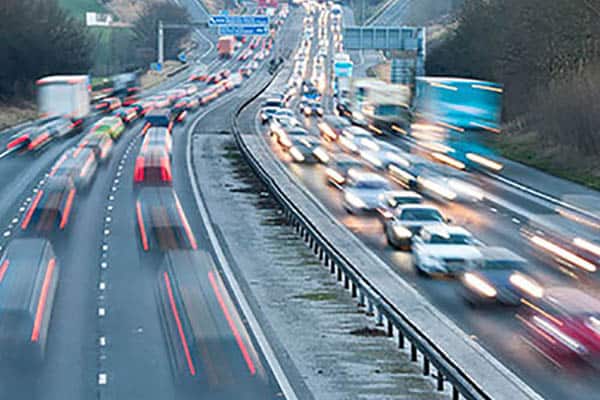With holiday travel comes hitting the road and heading “over the river and through the woods to Grandmother’s house” as it annual ritual for many families, but experts caution motorists to ensure sure both their cars and their winter driving skills are properly geared up to face the elements.
No one wants to be stranded in the cold by a vehicle breakdown. Properly preparing your vehicle for winter driving is essential for the safety of all passengers and will greatly decrease the chances of your vehicle letting you down during holiday travel.
Contact us for all your vehicular incident legal needs: 610.667.1500
Holiday Travel: How to Prepare Your Vehicle for a Safe Journey
The holiday season is a time for family gatherings, festive celebrations, and long-distance travel. Millions of Americans hit the road for holiday travel during this period, often encountering crowded highways, unpredictable weather, and extended driving hours. Preparing your vehicle before a holiday trip is essential for safety, comfort, and peace of mind. A few simple steps can prevent breakdowns, accidents, and unnecessary stress during your journey.
1. Inspect Your Vehicle
Start with a thorough inspection of your car. Check the tire pressure, tread depth, and overall condition to ensure safe handling on highways, especially in winter weather. Inspect your brakes, including pads and fluid levels, to avoid compromised stopping power. Make sure all lights—headlights, brake lights, and turn signals—are functioning properly. Don’t forget windshield wipers and washer fluid, which are crucial for visibility in rain or snow.
2. Check Fluids and Battery
Your engine fluids play a vital role in vehicle performance. Ensure that oil, coolant, transmission fluid, and brake fluid are at appropriate levels. A full windshield washer reservoir helps maintain clear vision in adverse conditions. The battery should be inspected for corrosion and tested to prevent failure, which is particularly important in cold weather when battery performance can decline.
3. Pack an Emergency Kit
Even with a well-maintained vehicle, emergencies can happen. Keep a roadside emergency kit that includes a first aid kit, flashlight, jumper cables, blankets, non-perishable snacks, and bottled water. A tire repair kit, spare tire, and jack are essential for unexpected flats. Consider including a phone charger and basic tools to handle minor repairs.
4. Plan Your Route
Map your route in advance, and be aware of rest stops, fuel stations, and alternate routes in case of traffic delays. Check for road closures, construction zones, and weather advisories to avoid surprises. Planning allows you to maintain a reasonable driving schedule and reduce fatigue, which is a leading cause of holiday accidents.
5. Practice Safe Driving Habits
During holiday travel, heavy traffic, distracted drivers, and adverse conditions are common. Drive cautiously, maintain safe following distances, and avoid aggressive maneuvers. Take regular breaks to stretch, stay alert, and share driving duties if possible. Never drive under the influence of alcohol or while fatigued.
Safe holiday travel begins with preparation. Inspect your vehicle, check tire pressure and fluids, and pack an emergency kit. Plan your route, monitor weather conditions, and allow extra travel time. Drive attentively, avoid distractions, and take regular breaks. Careful planning ensures a safer, smoother, and more enjoyable journey. For more information on safe holiday travel, click here.
Holiday travel should be enjoyable, not stressful. Preparing your vehicle in advance and practicing safe driving habits significantly reduces the risk of accidents, breakdowns, and delays. By inspecting your car, checking fluids and tires, packing an emergency kit, and planning your route, you ensure a smoother and safer journey. A little preparation goes a long way in keeping you and your loved ones safe during the busy holiday season. If you are in need of legal advice or assistance, please contact our team at Rosenberg Law.


Recent Comments